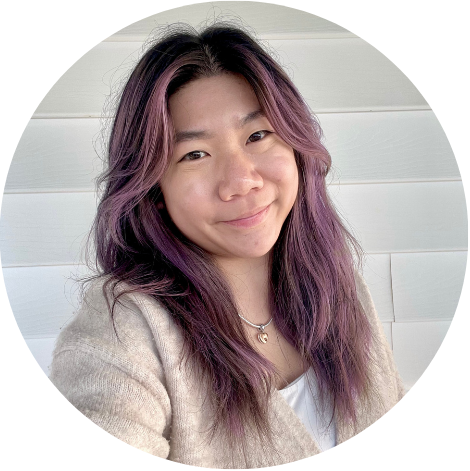Lindsay is a second-generation Canadian-born Chinese, born and raised in Vancouver on the unceded and ancestral territories of the Musqueam, Squamish, and Tsleil-Waututh nations. Lindsay completed her BA with a double major in History and English Literature, with an ACAM minor. Over the course of her undergrad and learning diverse stories from marginalized communities, Lindsay has gained a greater understanding of her own identity and the various communities she is a part of in what we call Canada. Her studies have been very much influenced by her experiences outside of academia, including working for Vancouver’s Board of Parks and Recreation and volunteering at her former high school. She will be applying her experiences and knowledge gained from her undergrad as she begins her career in education, beginning UBC’s Bachelors of Education Program in September.
What drew you to the ACAM program and why did you declare it as a minor?
Funny enough, I had no intention of doing an ACAM minor as I had planned and completed a double major in History and English literature. I was first introduced to the ACAM faculty when I took ACAM 250 as an elective in my second year but I didn’t really look into the program. Over the course of my undergrad, I took a particular interest in Canadian and Asian studies, as I was able to better understand my own identity, community, and family history through these courses. It wasn’t until my fourth year after I was prompted by an ACAM faculty member, that I looked into the ACAM minor and realized that many of my English and History classes fulfilled the ACAM minor, which turned out to be much more multi-disciplinary than I thought. So I guess you could call this all a happy accident.
How has ACAM impacted you or the people around you? What connections and ideas were you able to foster through ACAM?
Through ACAM, I have been able to look at who I am, where I come from, and where I am in completely new and complex ways. For most of my life, I felt very detached from my Asian heritage, community, and family history, in spite of growing up in an Asian-majority community. In macro and micro ways, I had all these questions about myself and the world that no one around me could really answer, but over the course of my undergrad and taking ACAM courses, I was able to better navigate these complexities intersectionally. I now have a greater value for and desire to learn and share the stories of marginalized communities, exploring them in connection with larger societal structures.
What was your favourite ACAM course?
My favourite ACAM course has to be ACAM 300 which I took in my fourth year. After taking several Canadian history classes, it was so amazing to hear about relatively unknown Asian Canadian histories that aren’t often talked about in larger overviews, pushing Asian Canadians into the centre instead of the margins. What I love about history in general is learning about people and their own unique stories in the larger historical context, and that is exactly what I feel ACAM 300 did. I also loved that it was a class that was unafraid to explore complex issues relating to Asian Canadian histories and communities.
What are you most looking forward to in the future?
I’m looking forward to this summer where I’ll be returning as a project manager for a Youth Summer Camp program, a different kind of stress than the usual academia-related kind, but nonetheless, it’ll be a great time! I also have a huge list of books, art projects, and shows I finally have time to tackle. I’m also looking forward to beginning UBC’s Bachelor of Education Program in September, where I’ll be working to become a history and English high school teacher. I hope to teach histories and stories that students in whatever community I work in can find themselves in, but also be challenged by in order to develop strong critical thinking skills that we need to bring about meaningful change in the world.
ACAM 10: Our Alumni in 2025
What have you been up to since graduation?
Finished my B.Ed at UBC and now a substitute teacher (TTOC) in Richmond and Burnaby
What have you learned from your ACAM experience that you still carry today?
The importance of community-centred work, the importance of exploring the role and intersections of identity, migration, colonialism, race, and gender, etc.
How has your ACAM experience equipped you for the challenges and opportunities you’ve encountered in exploring and developing your career?
I have taken my experiences and learning in ACAM and now incorporate those in my career and community work in education
 Faculty of Art
Faculty of Art
